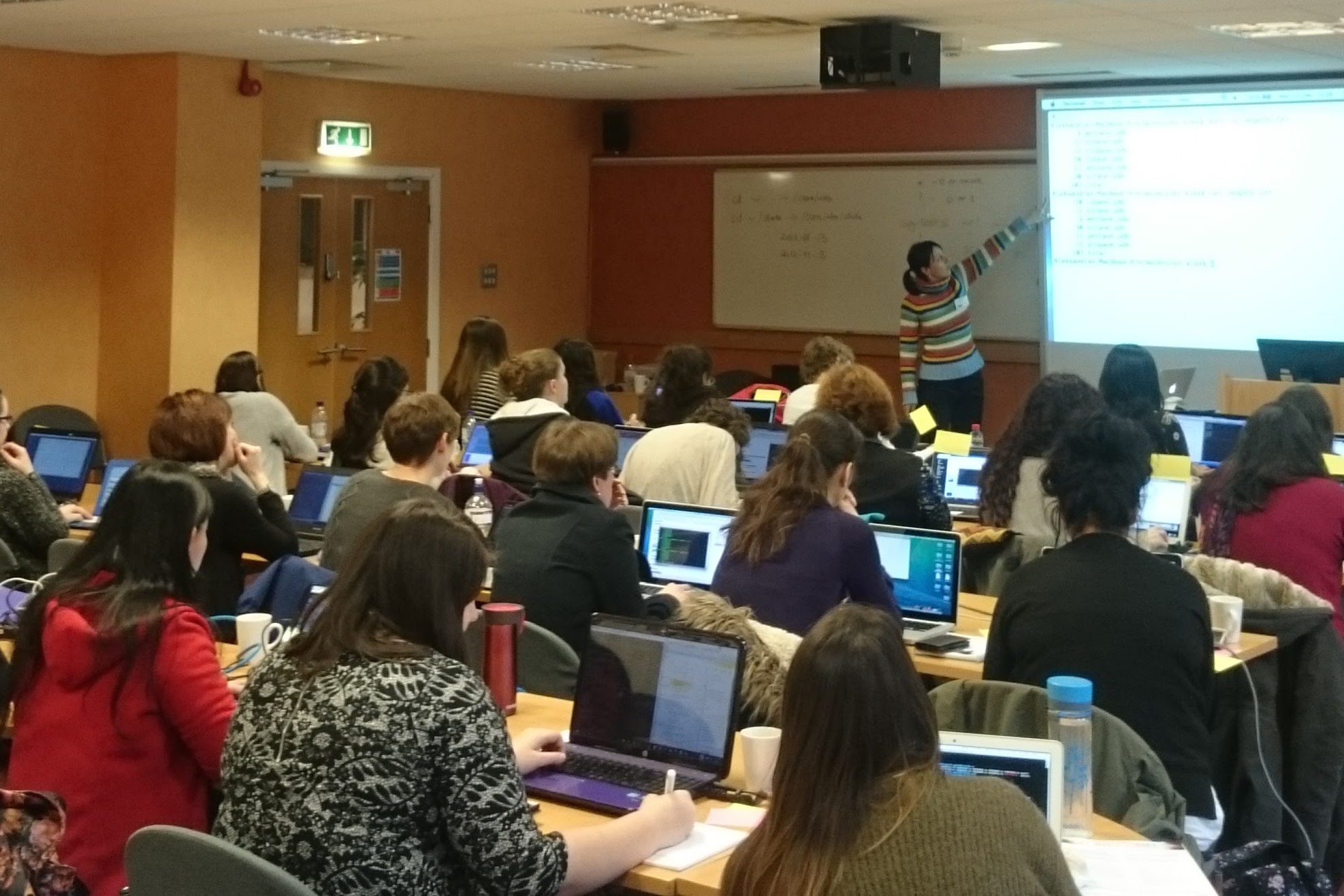
By Aleksandra Pawlik, formerly of the Software Sustainability Institute
Closing the gender gap in STEM is a broad topic. Increasing diversity and female participation at all levels of education and professional world in science and technology is a subject of lots of debates. The Software Sustainability Institute where I work has hosted a series of blog posts on Women in Software. Different perspectives from the authors of these posts show that there are many challenges and many ways they could be addressed.
One way is to create the best possible environment for females in STEM to feel confident and comfortable learning and working. But what does that mean in practice? Would running workshops which are aimed at a female audience make sense? Inspired by a blog post by Alexandra Simperler. I wanted to share the experiences and observations from training in computational lab skills addressed at women in STEM.
Last year, in collaboration with Software and Data Carpentry, the Software Sustainability Institute, ARCHER and Women in HPC organised a Software Carpentry workshop for Women in Science and Engineering (WiSE). I was one of the two instructors at that workshop. I have previously taught two WiSE workshops (in the USA and in Poland). Having the previous experience, I could make some comparisons and note some important points before, during and after the UK workshop.
Firstly, the workshop which is addressed at a female audience and taught exclusively by female instructors, should deliver exactly the same quality of training as a regular workshop. Regardless of who your students are, as an instructor you always owe them the engagement and effort to make it worthwhile for them to learn. It is not enough that you created a workshop for a particular underrepresented group. For the best possible learning environment high level of teaching is essential.
Secondly, having all female instructors and helpers at the workshop, as well as primarily or exclusively, a female audience, helps to create a relaxed and welcoming atmosphere. That kind of atmosphere contributes to the best possible learning environment. Several participants mentioned that they felt more encouraged to ask questions if they needed more explanation than they would be if there were men present in the room. They were more comfortable admitting that they might not have understood something and required further information.
Thirdly, advertising the course correctly and then sticking to what you promised turned out very important in the case of the WiSE UK workshop. At many standard Software Carpentry workshops the participants recruit from novices a lot of the time, even though the curriculum is more suitable for researchers who have had some programming experience. Software Carpentry has adjusted the training materials to accommodate for that and the instructors usually find themselves having to pitch to much more beginner audience than the pre-workshop questionnaire filled in by the participants would indicate it. At the WiSE UK workshop many attendees were very well versed researchers-programmers. It seemed that the participants significantly underestimated their skills when self-reporting them in the pre-workshop questionnaire. The instructors had to re-adjust their teaching approach and actually deliver training aimed at the audience with some programming experience.
Activities that contribute to closing the gender gap in STEM and increase diversity are not just a box-ticking exercise. In order to make impact, they require effort and engagement.
[one_third valign=”top” animation=”none”]

[/one_third]
[two_third_last valign=”top” animation=”none”]
Aleksandra leads the Software Sustainability Institute’s training activities. She holds a PhD in Computing from the Open University and her PhD research focused on documentation in scientific software.
Outside of academia, Aleksandra has worked as a researcher for NHS Lothian projects and as a freelance IT consultant in the commercial sector.
Aleksandra supports the development of Software and Data Carpentry initiatives. She is one of Software and Data Carpentry certified instructors and taught at a number of workshops in the UK, other European countries and US. Aleksandra is a member of the Data Carpentry Steering Committee and served as a member of Software Carpentry Steering Committee in 2015. She’s also supporting the Institute’s collaboration with the Centers for Doctoral Training in the UK.
[/two_third_last]

